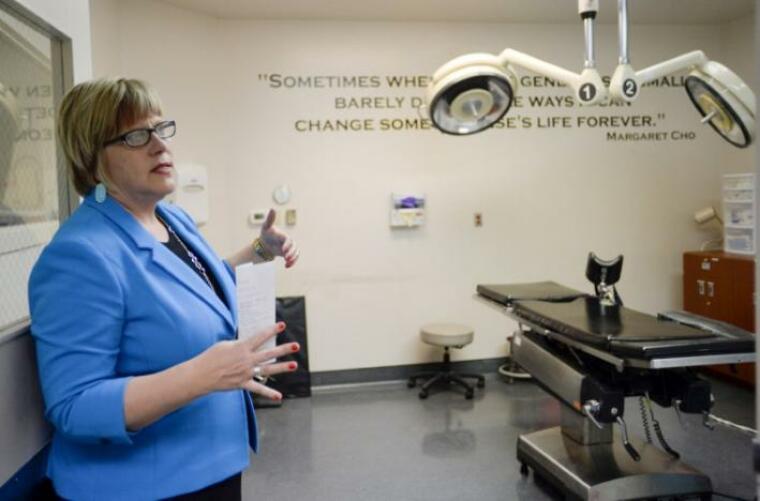Judge extends injunction against rule requiring proper burial for aborted babies in Texas

A federal judge has extended the injunction against a rule that would require medical centers and abortion facilities in Texas to bury or cremate the remains of aborted babies.
The rule, which was proposed by the Texas Department of Health and Human Services last July, was supposed to take effect on Dec. 19.
U.S. District Judge Sam Sparks issued a temporary restraining order to block the rule after the New York-based Center for Reproductive Rights (CRR) filed a lawsuit on behalf of several abortion providers. The lawsuit claimed that the regulation is unconstitutional and does not benefit the public.
Sparks delayed his final decision on Jan. 4 and extended the restraining order until Jan. 27, according to Life Site News.
Sparks had expressed concern that the rule for burying fetal remains could overrule a state law that allows cremated ashes to be scattered over any private property with the owner's consent. On Jan. 3, he ordered state lawyers to return to court the following day with more information about the law on scattering cremated remains.
The judge had suggested that he may permanently block the rule, calling it "political" and without "any benefit to all."
The plaintiffs have argued that the regulation would reduce access to abortion by increasing the cost. However, the state lawyers have contended that any increase would be nominal.
The Texas Conference of Catholic Bishops has indicated that its 15 dioceses are willing to provide cemetery space and burials for the aborted babies free of charge.
Amy Hagstrom Miller with Whole Woman's Health testified that her clinics would be in danger of forced closure due to the limited number of vendors available to comply with the regulation, Statesman reported.
State health officials have stated that the regulation is aimed at stopping the spread of disease. But Dr. Lendol Davis, who operates the Austin Women's Health Center, argued that the burial and cremation requirement would not reduce the risk of infection or offer other health benefits.
Texas currently allows aborted fetal remains to be incinerated, buried or disposed of in a landfill, or ground up and released into a sanitary sewer.
 Christians don't have to affirm transgenderism, but they can’t express that view at work: tribunal
Christians don't have to affirm transgenderism, but they can’t express that view at work: tribunal Archaeology discovery: Medieval Christian prayer beads found on Holy Island
Archaeology discovery: Medieval Christian prayer beads found on Holy Island Presbyterian Church in America votes to leave National Association of Evangelicals
Presbyterian Church in America votes to leave National Association of Evangelicals Over 50 killed in 'vile and satanic' attack at Nigerian church on Pentecost Sunday
Over 50 killed in 'vile and satanic' attack at Nigerian church on Pentecost Sunday Ukrainian Orthodox Church severs ties with Moscow over Patriarch Kirill's support for Putin's war
Ukrainian Orthodox Church severs ties with Moscow over Patriarch Kirill's support for Putin's war Islamic State kills 20 Nigerian Christians as revenge for US airstrike
Islamic State kills 20 Nigerian Christians as revenge for US airstrike Man who served 33 years in prison for murder leads inmates to Christ
Man who served 33 years in prison for murder leads inmates to Christ


 Nigerian student beaten to death, body burned over ‘blasphemous’ WhatsApp message
Nigerian student beaten to death, body burned over ‘blasphemous’ WhatsApp message 'A new low': World reacts after Hong Kong arrests 90-year-old Cardinal Joseph Zen
'A new low': World reacts after Hong Kong arrests 90-year-old Cardinal Joseph Zen Iran sentences Christian man to 10 years in prison for hosting house church worship gathering
Iran sentences Christian man to 10 years in prison for hosting house church worship gathering French Guyana: Pastor shot dead, church set on fire after meeting delegation of Evangelicals
French Guyana: Pastor shot dead, church set on fire after meeting delegation of Evangelicals ‘Talking Jesus’ report finds only 6% of UK adults identify as practicing Christians
‘Talking Jesus’ report finds only 6% of UK adults identify as practicing Christians Mission Eurasia ministry center blown up in Ukraine, hundreds of Bibles destroyed: 'God will provide'
Mission Eurasia ministry center blown up in Ukraine, hundreds of Bibles destroyed: 'God will provide' Church holds service for first time after ISIS desecrated it 8 years ago
Church holds service for first time after ISIS desecrated it 8 years ago Burger King apologizes for 'offensive campaign' using Jesus' words at the Last Supper
Burger King apologizes for 'offensive campaign' using Jesus' words at the Last Supper Uganda: Muslims abduct teacher, burn him inside mosque for praying in Christ’s name
Uganda: Muslims abduct teacher, burn him inside mosque for praying in Christ’s name